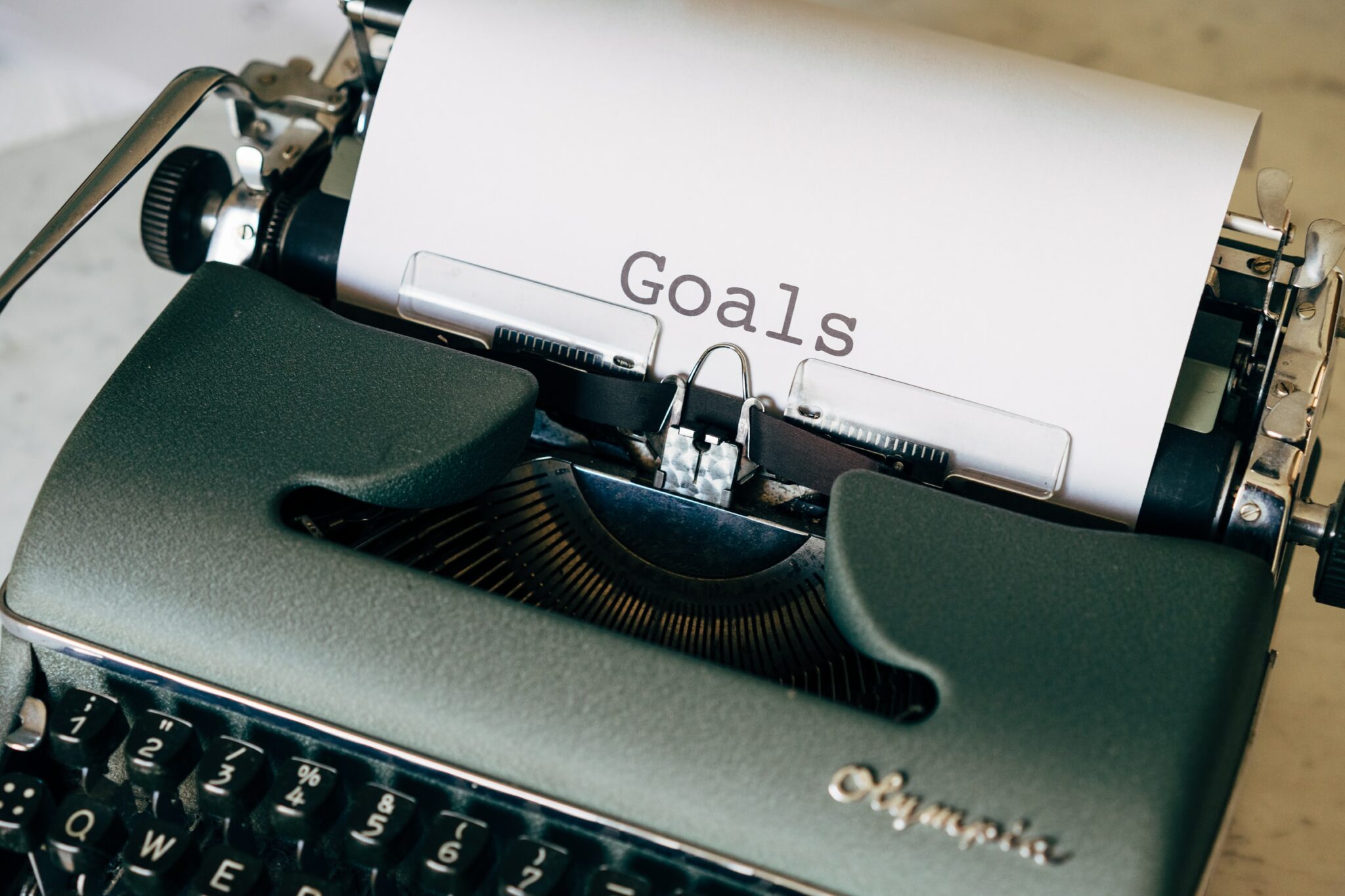FEATURED ARTICLE
Everything You Need To Know About Setting Financial Goals

Rebekah May
January 8, 2021 •4 min read
TABLE OF CONTENTS
What Are Financial Goals?
Examples Of Financial Goals
Why Should You Set Financial Goals?
How To Set Financial Goals
Things That Can Help You Achieve Your Goals
Summary
The start of a New Year often brings fresh enthusiasm for goal setting. It’s a time where we look hopefully to the year ahead, think about our dreams, and consider what we’d like to achieve. This year might feel a little different, but nevertheless setting goals, and in particular financial goals, should still be a priority.
What Are Financial Goals?
Financial goals are a set of objectives that help shape your spending and saving. They can focus around things you’d like to achieve in the short term, or they can play a part in you reaching bigger, longer term goals. They ensure that you have a plan for your money, and often mean you’ll reach monetary targets more quickly.
Examples Of Financial Goals
Everyone will have different financial goals, and you might even find that your own financial goals change over time. What’s important is that you think about what you want your money to help you achieve. Here are some examples of common financial goals:
- Paying off outstanding debts
- Saving money for retirement
- Starting an Emergency Fund
- Buying a property
- Starting your investment journey
- Saving for a holiday, new car, Christmas or birthday’s
- Saving money to start a new business
Why Should You Set Financial Goals?
Setting financial goals is just one way you can begin to take control of your money. Some people even believe that it is the key to financial success.
Having financial goals to work towards gives you focus, and often helps control how you’re spending your money day to day.
For example, if your financial goal is to save £2,000 for a holiday in six months' time, you’re less likely to mindlessly spend money on items that don’t help you achieve this goal.
Likewise, if your goal is to start an Emergency Fund, or reduce your debt, you might reconsider spending quite as much money on more redundant items like takeaways, and new clothes. Deciding instead to put the money toward increasing your savings pot.
How To Set Financial Goals
If you’ve never set a financial goal before it can be pretty daunting. But don’t worry, there are actually very few steps to setting a new financial goal.
To show you how to set a financial goal we’re going to use the example of buying your first home. Everyone knows that one of the biggest challenges to buying your first home is getting the deposit together, which makes it the perfect case for setting a monetary goal.
Step One:
The first step of setting a financial goal is to think about what you really want from your money. I.e. what's the ultimate outcome and why do you want to achieve it. In this example, the ultimate outcome is to save enough money to put down the deposit on a house.
Step Two:
The second step is to assign a monetary value and a time frame to your financial goal. For example, save a further £5,000 in the next 12 months.
Understanding how much money you need to save, and how long you have to save it helps you create your action plan.
It’s important that you are realistic here. You want a goal that’ll push you, but there’s no point setting a goal that is completely unrealistic. Setting an unrealistic financial goal could end up demotivating you more than it motivates you, so think carefully about this step!
Step Three:
Now you know what your goal is, and how long you have to achieve it, you can break this down into more manageable short-term goals. You know your goal is to save money for a house deposit. And you know you need to save £5,000 in 12 months, so now you need to know how you’re going to achieve that goal. Your short term goal in this instance could be to save £415 every month (£415 x 12 months = £4,980).
Step Four:
The last step in setting a financial goal is to set regular dates to review your progress. This could be every month or every couple of months. You’ll want to use this time to assess how you’re getting on with reaching your targets. You can also use this time to consider whether there is anything more you need to be doing in order to achieve your goals within the desired timeframe.
Things That Can Help You Achieve Your Goals
There are a couple of things that might help you reach your goals more quickly.
- Track your spending - Connect all your bank cards, saving accounts, investments, and loans to an app like Emma and we’ll help you track how much money you’re spending, saving, or investing every month.
- Pay yourself first - As soon as you’ve been paid, transfer a set amount of money to a savings or investment account. Having this money in a separate account will reduce the temptation to spend. It also means you’re likely to save more money than only adding whatever cash you have left at the end of the month.
- Create a budget - A budget is a great way to focus your spending on the things that really matter to you. Having a predetermined allowance for groceries, travel, eating out, etc means you’re less likely to spend money on impulse items that you don’t really need, or want.
- Automate Your Money - automating your savings, bills, or investments is a great way to reduce the stress often associated with money. Take some time to automate your accounts so that the correct amount of money comes out of your account without your involvement.
- Have an accountability partner - Discuss how you’re getting on with a friend that has similar goals to you. Share any tips and tricks that have helped you stick to your goals, and motivate each other to continue hitting any short or long term targets.
Summary
Setting financial goals isn’t always easy, but doing so is an important step toward becoming more financially secure.
If you’re new to this type of financial planning then join the Emma Community forum where you can ask other people in similar situations how they manage their money and their goals.
Or if you want a helping hand in reaching your money targets, then download Emma. Emma is a money management app that helps you set budgets, track your spending, and save money. It’s available for free on Google Play or the App Store and includes tonnes of features that’ll help you take control of your money.
You may also like
Check out these related blog posts for more tips
© 2026 Emma Technologies Ltd. All Rights Reserved.
Emma is registered and incorporated in England and Wales.
Emma Technologies Ltd is an appointed representative of RiskSave Technologies Ltd, which is authorised and regulated by the Financial Conduct Authority (FRN 775330).
Payment services (Non MIFID or Deposit related products) for Emma Technologies Ltd are provided by The Currency Cloud Limited. Registered in England No. 06323311. Registered Office: Stewardship Building 1st Floor, 12 Steward Street London E1 6FQ. The Currency Cloud Limited is authorised by the Financial Conduct Authority under the Electronic Money Regulations 2011 for the issuing of electronic money (FRN: 900199). For more detail on how your money is protected please see here. You can also find Currency Cloud's Terms of Use here.
Emma Technologies is an Introducer Appointed Representative of Quint Group Limited and not a lender. Quint Group Limited is authorised and regulated by the Financial Conduct Authority (Firm Reference Number 669450). Monevo Limited is an Appointed Representative of TransUnion International UK Limited. TransUnion is authorised and regulated by the Financial Conduct Authority (Firm Reference Number 737740). Emma Technologies introduces customers first to Quint Group Limited, as a licensed credit broker, who then refers on to Monevo Limited.
Emma is registered with the Financial Conduct Authority under the Payment Services Regulations 2017 for the provision of payment services.
Financial Conduct Authority Reg Nr: 794952.
Company Registration Number: 10578464.
Data Protection Registration Number: ZA241546.
All testimonials, reviews, opinions or case studies presented on our website may not be indicative of all customers. Results may vary and customers agree to proceed at their own risk.
Resources: Cancel subscriptions, Cashback offers, Who charged me, Rent Reporting, Budgeting, Investment universe, Emma vs Moneyhub.
Featured cashback offers: Samsung, SimplyCook, NordVPN, Audible, M&S Homeware.










